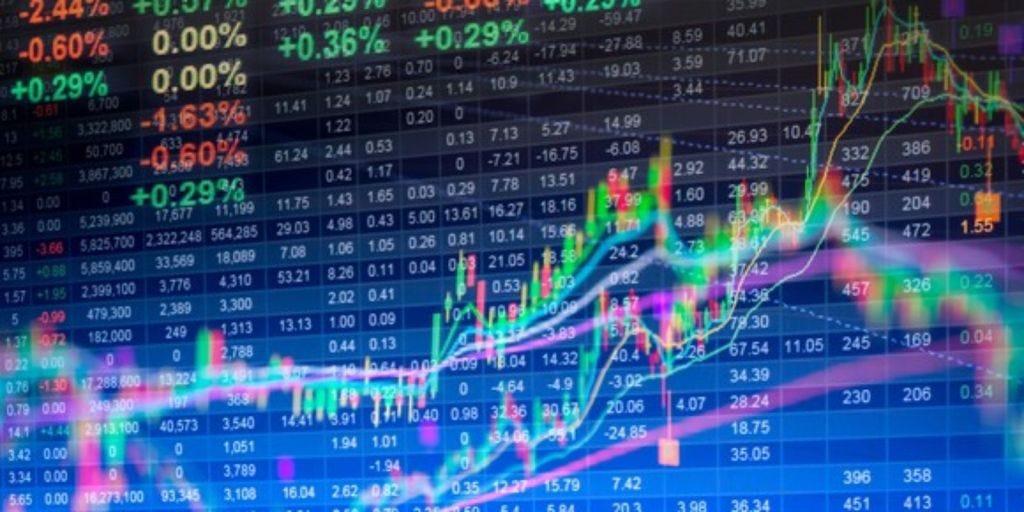AI is transforming the financial landscape, reshaping the stock market’s analysis and trading landscape. In the following discussion, we will delve into the pivotal role of AI in these spheres, highlighting the inner workings of AI trading technology and its numerous benefits to investors.
In this article, we will look at the following topics:
- AI’s Ascension in Stock Market Analysis
- Understanding AI Trading
- Diverse AI Trading Threads
- Profits from AI-Powered Stock Trading
Furthermore, we will shed light on the enigmatic domain of forecasting stock market trends for the future, elucidating how AI can provide invaluable perspectives for investors, particularly in anticipating upcoming market fluctuations. Let us embark on this journey to discover the impact of AI on the financial landscape.
The Ascendancy of AI in Stock Market Analysis
The infusion of AI into stock market analysis has paved the way for unprecedented data processing and decision-making progress. AI-driven algorithms adeptly scrutinize copious real-time data, capturing insights that conventional statistical models often overlook. Financial institutions have promptly embraced this technology, positioning themselves as early adopters pursuing competitive edges. As a testament to its potential, the anticipated market value of online trading is set to hit around $12 billion by 2028, with AI being a significant catalyst propelling this growth.
Comprehending AI Trading
AI trading entails deploying artificial intelligence, predictive analytics, and machine learning to conduct exhaustive historical market and stock data analyses. By harnessing these technologies, AI trading platforms empower investors to formulate investment concepts, construct portfolios, and execute buying and selling orders precisely. These sophisticated technologies empower AI trading platforms to produce valuable insights, recognize patterns, and make real-time data-driven decisions.
How exactly does it work?
Key facets to further dissect the workings of AI trading technology encompass:
Data Analysis and Processing: Navigating through intricacies is facilitated by an AI development company. AI trading platforms are tailored to manage colossal data volumes, including historical price data, financial reports, news articles, social media sentiments, and more. Through sophisticated data analysis methodologies, AI algorithms distill pertinent information, uncover correlations, and reveal latent patterns that might elude human traders.
Machine Learning Algorithms: Machine learning is at the core of AI trading technology. By drawing insights from historical data through algorithms, AI systems can learn from prior market behaviors and adapt strategies accordingly. These algorithms identify trends, pinpoint anomalies, and consistently refine models for enhanced performance.
Prognostic Analytics: AI trading systems employ predictive analytics to foresee future market movements and pinpoint potential trading opportunities. Analyzing historical data, market trends, and diverse indicators enables AI algorithms to predict price movements, volatility, and potential risks, aiding traders in making well-informed decisions.
Portfolio Optimization: AI trading technology aids investors in optimizing portfolios by utilizing sophisticated algorithms considering risk tolerance, investment objectives, and market conditions. These algorithms analyze diverse assets, allocate investments efficiently, and dynamically rebalance portfolios to synchronize with evolving market dynamics for optimized returns.
Automated Execution: A pivotal advantage of AI trading technology is its ability to autonomously execute buying and selling orders based on predefined strategies and market conditions. This automation minimizes human errors, facilitating rapid execution at optimal prices. Traders can establish specific rules and parameters for entry and exit points, stop-loss orders, and profit targets, all executed seamlessly by the AI system.
Real-Time Monitoring and Alerts: AI trading platforms perpetually monitor market conditions, news events, and pertinent indicators in real time. Swift identification of significant events, market fluctuations, or anomalies enables traders to promptly respond to changing conditions and adjust trading strategies as needed.
By amalgamating data analysis, machine learning, predictive analytics, and automated execution, AI trading technology equips investors with advanced tools to navigate the complexities of the stock market. It empowers them to make data-driven decisions, optimize portfolios, and execute trades efficiently, enhancing their potential for success in the ever-evolving financial realm.
Diverse Strands of AI Trading
An intriguing facet of AI in trading lies in diverse AI trading strategies. These strategies leverage advanced algorithms, predictive analytics, and machine learning to analyze market data, extract insights, and execute trades. Within this segment, we will scrutinize various AI trading types, each offering distinctive approaches and advantages to investors in their quest for finely tuned-trading outcomes. Understanding these types can offer valuable insights into the multifaceted landscape of AI-driven trading strategies and their impact on the financial sector.
In the domain of AI trading, several distinct approaches have surfaced:
- Quantitative Trading: Relying on intricate quantitative models, quantitative trading analyzes stock prices, trading volumes, and other pertinent data points to unveil patterns and trends, aiding investors in identifying promising investment prospects.
- Algorithmic Trading: Also known as algo-trading, this strategy utilizes pre-established rules based on historical data for making trading decisions. It automates trade executions, capitalizing on specific market conditions and minimizing human errors. High-frequency trading, a subset of algo-trading, involves rapidly buying and selling large stock volumes.
- Automated Trading: Often synonymous with AI trading, automated trading amalgamates quantitative trading techniques with automated algorithms grounded in historical data. These algorithms perpetually monitor the market, executing trades based on predefined strategies without necessitating human intervention. This approach enables real-time adjustments and optimization of trading decisions.
Benefits of Smart Stock Trading
As artificial intelligence (AI) continues to leave an indelible mark on stock market analysis and trading, its influence on investors and financial entities remains paramount. AI-driven trading systems have ushered in an era of heightened efficiency, precision, and profitability in financial markets. In this segment, we shall delve into the advantages of AI stock trading, unraveling how this technology can revolutionize the modus operandi of investors. By comprehending and leveraging these benefits, investors can stay at the forefront of progress and maximize their chances of success in today’s dynamic and fast-paced stock market milieu.
AI trading presents an array of benefits for investors, hedge funds, and investment firms:
- Diminishing Research Time and Enhancing Accuracy: AI trading automates research and data-driven decision-making processes, allowing investors more time to oversee trades and offer advisory services. Studies suggest that traders employing algorithmic trading witness up to a 10% surge in productivity. By mitigating human error, AI trading augments precision in decision-making.
- Pattern Prediction: Through sentiment analysis and natural language processing, AI trading systems collate information from diverse sources, including news outlets and social media platforms. By scrutinizing text and linguistics, AI discerns patterns within subjective material, enabling investors to identify market swings, shifts in sentiment, and emerging trends.
- Cost Reduction: Traditional investment firms often bear hefty overhead costs tied to human analysts, brokers, and advisors. AI trading technology automates repetitive tasks, significantly reducing the need for manual intervention and minimizing human resource expenses. While there may be initial costs associated with implementing and maintaining AI systems, firms can realize substantial savings in overhead expenses over time. Additionally, AI algorithms maintain constant vigilance over the stock market, providing 24/7 surveillance and diminishing the necessity for human monitoring.
Conclusion
Artificial intelligence has emerged as a revolutionary force in stock market analysis and trading. By harnessing the prowess of AI technologies such as machine learning, sentiment analysis, and algorithmic predictions, investors can leverage data-driven insights to make informed decisions and optimize their trading strategies. The ongoing evolution of AI promises even greater efficiency, accuracy, and opportunities for investors in the dynamic world of stock markets. As AI continues to advance, its role in the financial industry is set to expand further, shaping the future of stock market analysis and trading.
In summary, the infusion of AI into the financial landscape has brought forth a paradigm shift. The amalgamation of cutting-edge technologies has bestowed upon investors, hedge funds, and financial institutions a set of tools that streamline processes and significantly enhance their endeavors’ precision and profitability.



